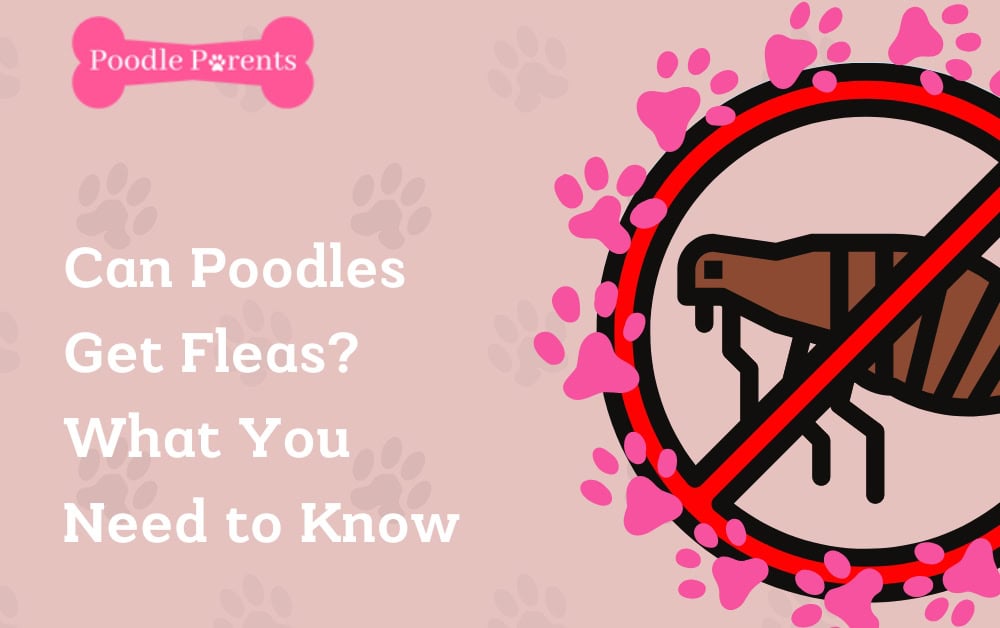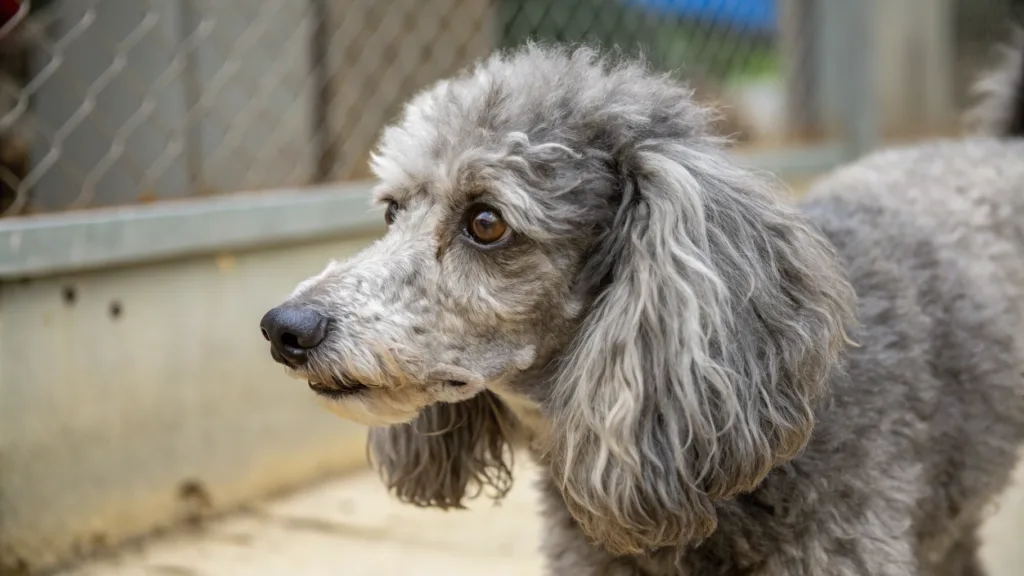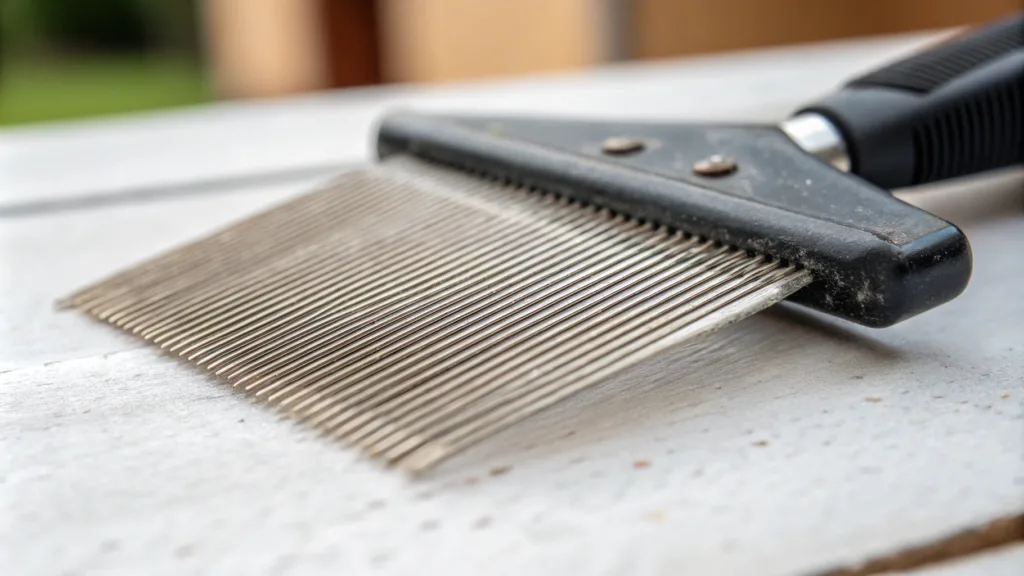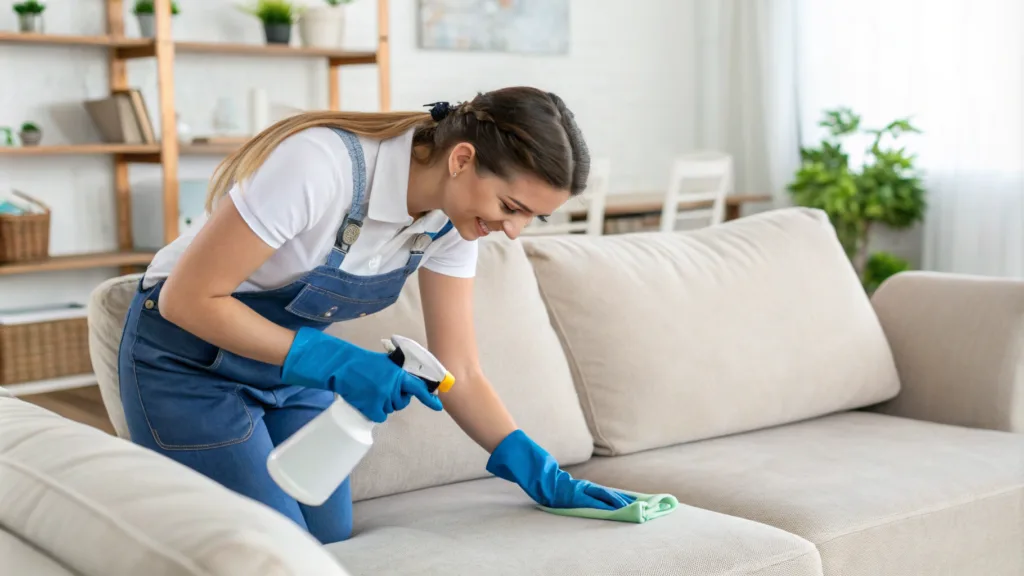Can Poodles Get Fleas? What You Need to Know

With their curly coats, bright eyes, and friendly personalities, they seem too perfect to have any issues – right? Wrong. It turns out that even the most majestic canines are not exempt from pesky parasites – yes, we’re talking about fleas! So, do poodles get fleas? Let’s find out.
It may come as a surprise, but even Poodles aren’t immune to these annoying critters. In fact, no dog breed is entirely safe from them.
Fleas don’t discriminate based on size or hair type, so if your pup spends time outside exploring, they could pick up some unwanted guests.
Luckily, pet owners can minimize the risk of their furry friends catching fleas in the first place – this includes regularly treating your pooch with anti-flea products and keeping an eye out for signs of infestation, such as excessive scratching or biting at fur.
Now let’s dive into the details and answer: Can Poodles Get Fleas?
Overview Of Flea Prevention
Fleas are a common pest problem for both cats and dogs. Flea infestations can cause severe health issues, such as anemia or skin irritation from flea bites.
Prevention is the most crucial step in dealing with a flea problem in poodles. This includes:
- Regularly check your pet for signs of fleas.
- Using monthly spot-on treatments to prevent fleas on your poodle. (Some also have tick prevention included.)
- Cleaning areas where pets spend time is a great flea control solution.
If you do find that your pet has been affected by a flea infestation, it’s essential to treat the issue quickly. Treatment options include topical ointments, natural repellants, and oral medications prescribed by your veterinarian.
Additionally, vacuuming all surfaces is essential to eliminate any existing eggs or larvae left behind by adult fleas. All bedding should also be thoroughly washed in hot water weekly to help reduce the risk of re-infestation.
You can keep your furry friends safe from pesky fleas with proper care and treatment!
Symptoms If A Poodle Has Fleas

Yes, poodles can get fleas just like any other breed of dog. Flea bites cause severe itching and discomfort in dogs, so taking preventive measures against fleas is essential.
The most common signs of a flea infestation are small red bumps caused by flea bites and black spots on the skin from flea droppings. You may also see evidence of flea eggs or larvae around your pet’s fur.
Is your Poodle more reserved and not playing as he usually does? This also can be a sign of infestation. Poodles are emotional animals who can become depressed when something goes wrong. So if you notice this mood change, it might be worth checking for these pests.
If you suspect your poodle has fleas, several treatments are available to help control the problem. These include using topical medications such as sprays and shampoos, oral medications, and even natural remedies such as essential oils or flea powder.
Allergic reactions to fleabites are possible, so if your poodle shows signs of an allergic reaction, contact your veterinarian for further advice. Proper treatment and prevention methods can protect your poodle from irritating and painful fleas.
Products For Your Poodle To Get Rid Of Flea and Tick Problems

To prevent and treat flea infestations in your pet, here some products to kill fleas and manage the problem:
- Topical Flea Treatment – One of the best flea treatments, it’s a topical application, usually at the back of the neck. Since fleas are transmitted from one pet to another, all pets must be treated simultaneously. (These also offer tick prevention for poodles.)
- Oral Flea Treatment – Oral treatments are available as chewable tablets or liquid. Oral flea treatment is an alternative to topical applications and can be used in pets with sensitive skin or allergies.
- Flea Comb– This is a great tool to help remove fleas from your Poodles coat. It has fine bristles and removes flea eggs and fleas.
- Flea collars – They have the same effect as topical flea treatment but are safer because they do not penetrate the skin and help prevent fleas.
- Flea Shampoo – They are usually effective in removing fleas and eggs with regular use. You can also get 2in1 flea and tick shampoo.
- Sprays for fleas – Many use natural ingredients to help repel fleas from contacting your pet’s skin.
- Vacuuming and Cleaning – Vacuum carpets regularly and wash bedding, blankets, and toys often to eliminate existing eggs and larvae which may be present in those places.
It’s important to remember that these steps need to be taken all year long, as fleas thrive in warm temperatures. Being proactive is the key to keeping your poodle free of fleas!
Home And Natural Treatment Options To Remove Fleas

Fleas can be a pain, but thankfully there are some simple and natural remedies that you can use to get rid of them.
As the saying goes, ‘the best defense is a good offense,’ so if we want to get rid of fleas, then it’s essential to understand why they love our pets so much in the first place.
Flea infestations occur when fleas find an environment with plenty of food for them—namely, your pet! Fleas are one of nature’s most persistent pests, so getting rid of them isn’t always easy.
But with a few simple steps, you can get rid of the fleas:
- Regular vacuuming and washing pet bedding
- Apple cider vinegar is a great way to treat fleas on Poodles naturally. Mix six cups of apple cider vinegar with four cups of water and a pinch of sea salt to use it. Spray the solution directly onto your Poodles coat – just be sure to avoid their eyes! This will help balance your pup’s pH levels and create an environment unsuitable for fleas.
- Coconut oil contains lauric acid, a fatty acid that can kill fleas. It works by coating the flea’s exoskeleton and suffocating it.
- Organic soap – If you want to keep your Poodle flea-free and smelling great, try using organic soaps like organic peppermint soap or organic rose soap instead of regular dog shampoo. Washing your pup with these can give the same result as a traditional wash.
- Neem oil is an effective natural insect repellent and a not-as-well-known flea treatment. It comes from Burma, Sri Lanka, and India. You can apply it directly to your Poodles coat or add it to their shampoo. You can also dilute it to make your flea spray.
These are just some examples that worked after speaking to other pet owners.
Finally, make sure to check your pet regularly for any signs of flea activity; this will ensure that you catch infestations early before they become unmanageable.
What To Do After Treating A Flea Infestation?

After treating your poodle for fleas and ticks, there are still a few steps you should take to ensure they stay away. An excellent way to start is with a flea bath. This will help eliminate any remaining eggs or larvae living in their fur.
If your standard, miniature, or toy poodle spends time outdoors, regularly check them for signs of flea and tick bites. Ticks carry diseases like Lyme, so if you find any on your pet, remove them immediately and consult a veterinarian as soon as possible.
Regular grooming also helps stop fleas before they become an issue by removing excess flea dirt and dead skin cells where parasites may hideout.
Lastly, be sure to keep your home clean by vacuuming carpets and furniture often – this will help reduce the chances of an infestation happening again in the future.
Environmental Factors: How Dogs Get Fleas
Environmental factors play a significant role in attracting fleas. Flea larvae need humid environments with moderate temperatures to develop and survive.
Humid, shady areas of your yard provide ideal conditions for flea larvae growth and development. Additionally, if you have pets that spend time outdoors, they can bring live fleas or eggs inside on their fur.
If it’s an area where pests are familiar, like mice and rats, these animals could carry other species of fleas, such as the zodiac flea. It is essential to regularly check your pet’s fur for any signs of fleas so that preventative measures can be taken when needed.
Regular lawn care is essential to repel fleas from entering your home; mowing frequently and removing debris will help discourage them from harboring in your yard.
Also, vacuum carpets and furniture often because adult fleas lay eggs that get mixed up into dust particles around the house. Disposing the bag after each vacuum session helps reduce the chances of new infestations forming within the home environment!
Potential Complications If You Don’t Eliminate Flea Problems
Fleas are pesky creatures that can cause a variety of health problems for both humans and animals. Fleas may be tiny, but they can significantly impact your pet’s life if you don’t take the necessary steps to eliminate them.
While dealing with fleas is often seen as an annoyance, it’s essential to understand the potential complications that can occur due to their presence.
Potential Complications:
- Anemia in dogs, especially when carrying a heavy infestation. Leading to vomiting, weight loss, rapid breathing, and weakness.
- Tapeworms can be passed on to your dog, causing your dog to experience itchiness, vomiting, and diarrhea.
- Allergy in your dog leads to skin irritation, hair loss, and constant scratching.
- Skin infections cause your dog to have hot spots.
Fleas can spread rapidly within a short period. Therefore, it’s essential to take the necessary steps to eliminate them.
Concluding – Can Poodles Get Fleas?
In conclusion, fleas are a common problem for all pets, including your toy, miniature or standard poodle. It is essential to be proactive and protect your pet from these parasites as best you can.
Many options range in method, cost, and effectiveness; understanding the signs of infestation and being vigilant with prevention is vital.
Regularly checking your dog’s fur and skin is an effective way to detect any signs of flea activity early on. Additionally, ensuring their environment remains free from high humidity levels will help keep them safe.
Although a little extra effort may be required when caring for a poodle exposed to fleas, it’s worth it to ensure their health and safety.
Finally, remember that if your poodle develops an infestation, several treatments are available to eliminate the problem quickly and effectively – so don’t hesitate to seek professional advice if needed. The most important thing is keeping them healthy.
If you would like to leave a comment below, let us know what you thought of the article: Can Poodles Get Fleas? What You Need to Know we would appreciate it.






